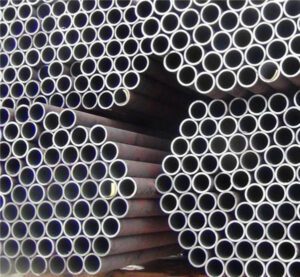applications of Schedule 40 Pipe
Schedule 40 pipes have gained significant popularity in the construction and industrial sectors due to their durability and versatility. These pipes are widely used for a range of applications, including plumbing, HVAC systems, water distribution, and more.
Manufactured with a standardized wall thickness, 40 pipes offer excellent strength and structural integrity. They are typically made from materials like PVC (Polyvinyl Chloride), steel, or stainless steel, depending on the specific requirements of the project.
One of the key advantages of schedule 40 pipes is their ability to handle high-pressure applications. The thicker walls of these pipes enable them to withstand increased internal pressures, making them suitable for transporting fluids under demanding conditions.
In plumbing systems, 40 pipes are commonly used for both residential and commercial projects. Their robust nature allows them to handle the flow of water, sewage, and other liquids effectively. Additionally, they are resistant to corrosion and can withstand harsh environmental conditions, ensuring long-lasting performance.
The HVAC industry also relies on 40 pipes for ductwork and ventilation systems. These pipes provide a reliable conduit for air circulation and are known for their low friction loss, contributing to energy efficiency.
Furthermore, schedule 40 pipes find extensive use in industrial settings, where they are employed for transporting chemicals, gases, and various fluids. Their strength and durability make them ideal for applications that involve high temperatures and pressures.

It is important to note that schedule 40 pipes are available in different sizes to accommodate various requirements. Contractors and engineers carefully select the appropriate diameter and material composition based on the specific needs of each project.
Overall, schedule 40 pipes have become a go-to choice for professionals across multiple industries. Their reliability, strength, and adaptability make them an indispensable component in many construction and industrial applications.

